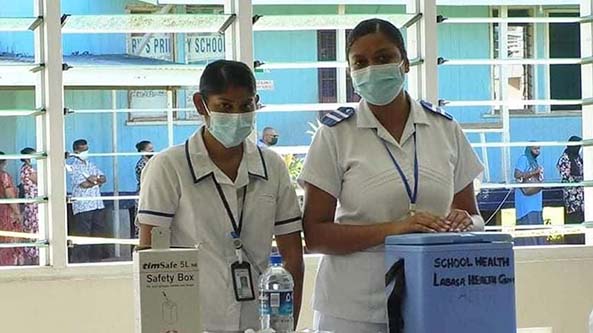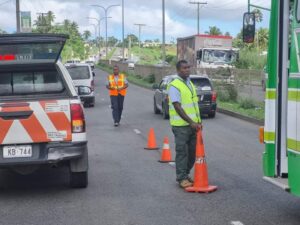Fiji’s Health Ministry will most likely incorporate in the schools’ vaccination program, the deployment of COVID-19 vaccines to kids aged between 5 and 11.
Scheduled to be rolled out early next month, Permanent Secretary for Health Dr James Fong said like any other vaccine administered under the schools’ program, it would require parental consent.
The aim of the program, as with the ongoing COVID-19 vaccination deployment is to offer protection to those in the age group, the impact of which enhances the country’s overall protection from the coronavirus, particularly Fiji’s vulnerable population.
“We do know that getting a lot of vaccination in the small children helps to protect the vulnerable. The closeness between the children and elderly folks involves a lot of close contacts so it protects them,” Dr Fong said.
“It allows us to further reduce the ability of the virus to transmit through the community, making it harder for it to move around. It also means if there is an outbreak, the outbreak is slower, and it is easy to contain.”
Ahead of the rollout next week, the ministry anticipates mixed reactions including hesitancy from some parents to have their children receive the vaccine.
“We expect there will be hesitancy. As much as there is hesitancy, there are a lot of parents who are angry with us for not starting, so we have got a lot of reactions across the board, I will expect that some parents may have different ideas about the efficacy of the vaccine or the side effect. I do know that the vaccine has been started enough to declare that it is safe.”
As is, vaccination remains optional, but it could be made compulsory if the ministry finds “any urgent justification for it.”
This is the third such pediatric age grouping for vaccines to be administered following the 15-17 age bracket, and the 12-14 age bracket.
As of 20 June, nearly 83 per cent of children in the 15-17 age group who have received their first dose have been fully vaccinated likewise nearly 61 per cent of those aged between 12 and 14 years. For adults, this stands at 85 per cent of those who have received their first dose.









